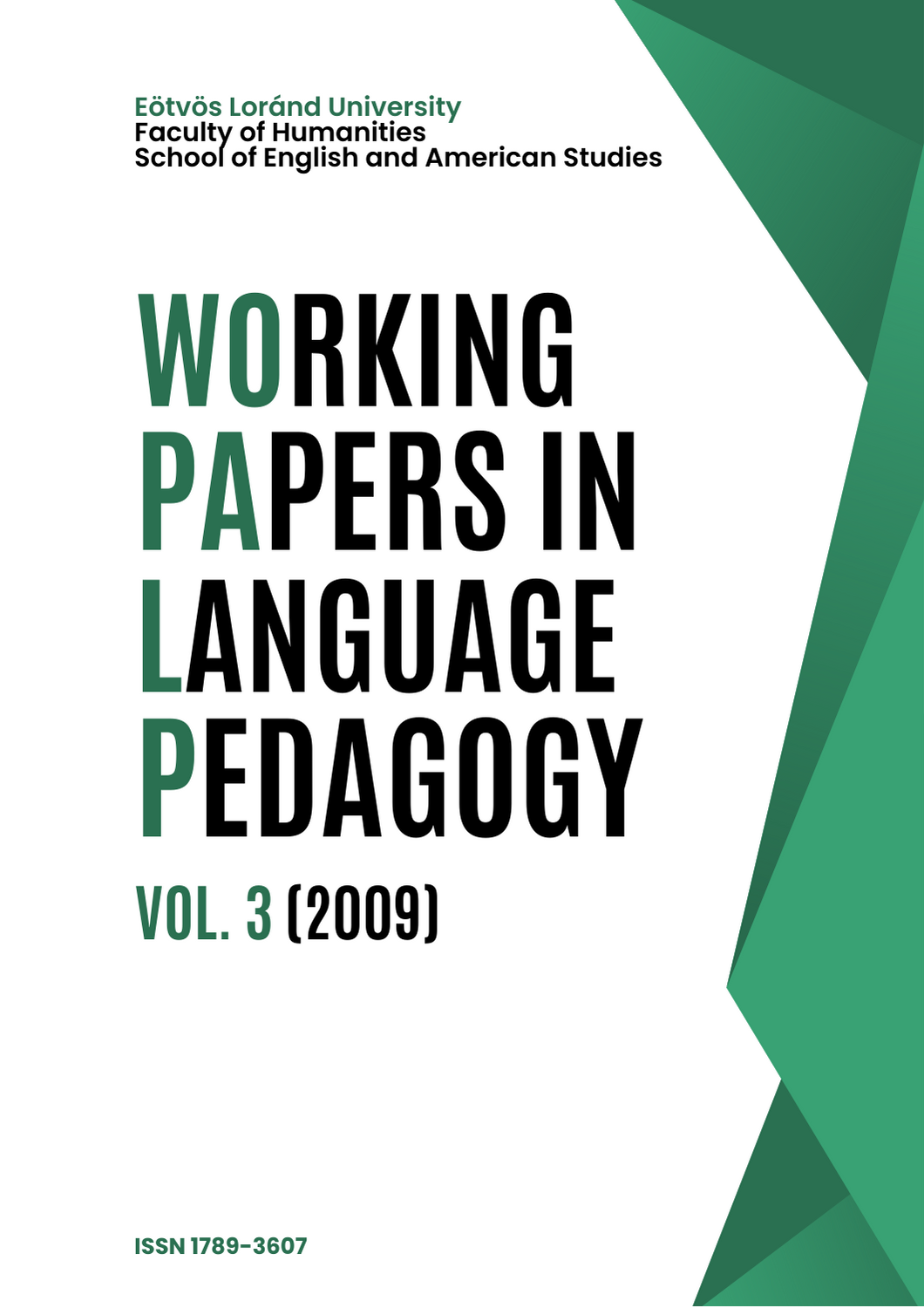Hungarian University Students’ Beliefs about Language Learning: A Questionnaire Study
DOI:
https://doi.org/10.61425/wplp.2009.03.94.113Keywords:
language learning beliefs, gender, target language differences, principal component analysis, authentic materialAbstract
This paper deals with the results of a research project conducted among first-year language majors (N = 109) studying at the English and German departments of a university in Budapest, concerning their beliefs about language learning. The instrument employed in the study is a modified Hungarian version of Horwitz’s (1987) BALLI (Beliefs About Language Learning Inventory). Although numerous similar studies have been conducted since the inventory was first published, the present study is unique as it investigates not only gender effect, but also the differences in learners’ beliefs based on their target language. The rationale for examining differences caused by the language learnt is that in the past several decades the English language has emerged to become the global lingua franca (McKay, 2003), while German, which had until recently enjoyed a strong regional significance, has lost a considerable amount of importance. Therefore, it has become relevant to examine whether learners’ beliefs about language learning are global or rather influenced by the given language they are studying. The results of the study are discussed in terms of the principal components that were established, which deal with attitude towards authentic materials, motivation, language aptitude, language difficulty and language learning approaches. These results show a number of significant differences based on the gender and target language of respondents.




